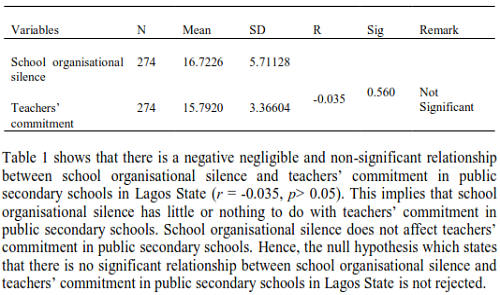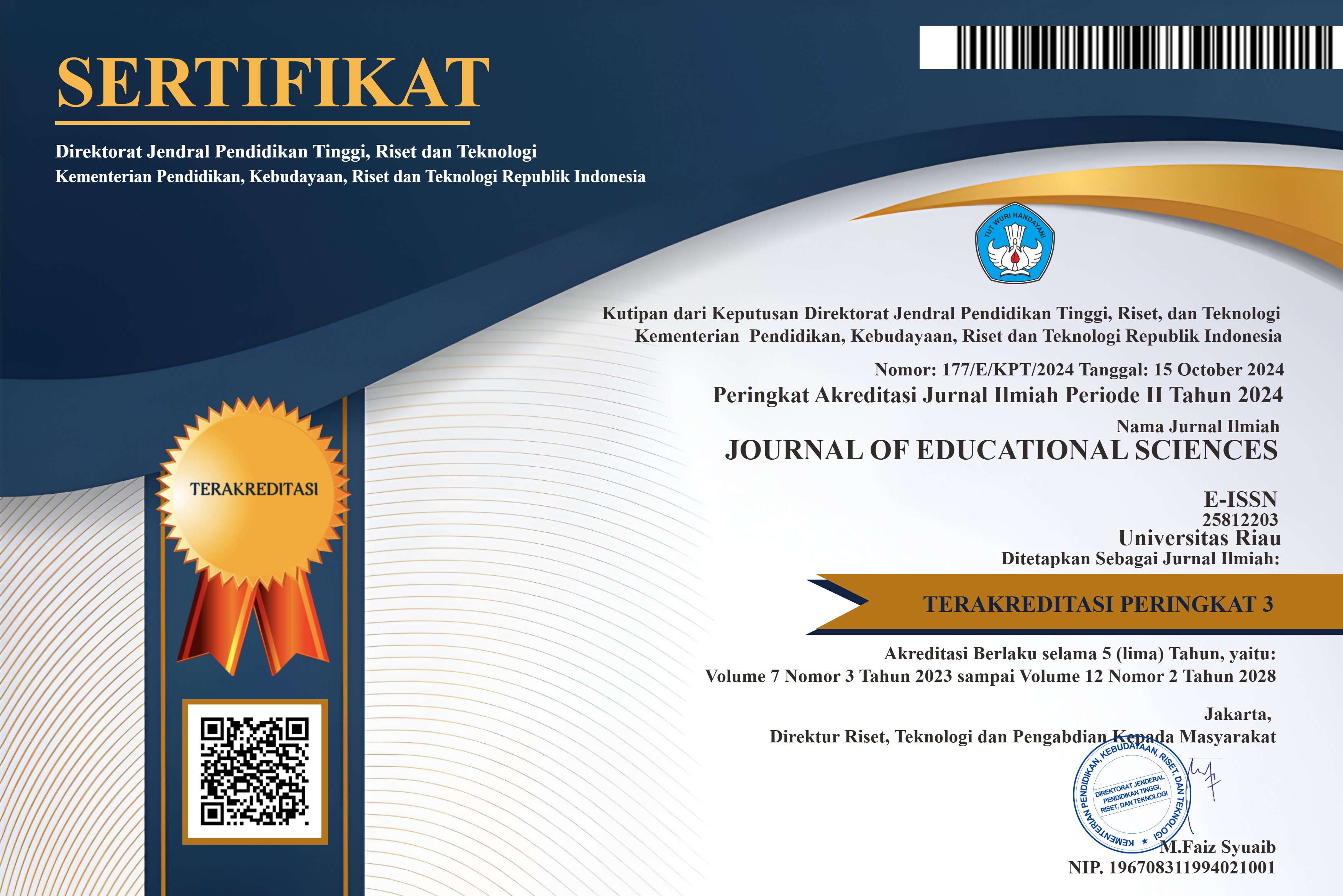School Organisational Silence, Teachers’ Job Commitment and Productivity in Senior Secondary Schools Education District I of Lagos State, Nigeria
DOI:
https://doi.org/10.31258/jes.5.3.p.569-583Keywords:
Silence, Organisational Silence, Job Commitment, ProductivityAbstract
The purpose of this study is to determine the relationship between school organisational silence and teachers’ job commitment and productivity. Two hypotheses (tested at 0.05 level of significance) were formulated to guide the study. With the study’s foundation anchored on correlational and descriptive research designs, its population comprised all teachers. The sample size was 300 teachers. Analysis was carried out using inferential statistics. The data of the study were obtained by questionnaire. Pearsons Product Moment Correlation Analysis was used to test the two hypotheses. Findings indicate that a positive and non-significant relationship existed between school organisational silence and teachers’ job commitment in Lagos State Education District I (r = -0.035, ρ>0.05) and the study also found that there was a negative and non-significant relationship between school organisational silence and teachers’ productivity in Lagos State Education District I (r = 0.770, ρ>0.05). It is concluded that organisational silence is present in Lagos State Education District I senior secondary schools, as evidenced in the study. The study therefore recommended that school leaders/managers should always engaging school teachers in communication and entering them into discussions and decisions in order to reduce silence in the organisation of the school, so as to enhance teachers’ job commitment. School as organisation should pay attention to not only the professional knowledge of the applicants but also to their personal characteristics, hence this can boost the teachers’ productivity.
Downloads

Downloads
Published
Issue
Section
License

This work is licensed under a Creative Commons Attribution-NonCommercial-ShareAlike 4.0 International License.












